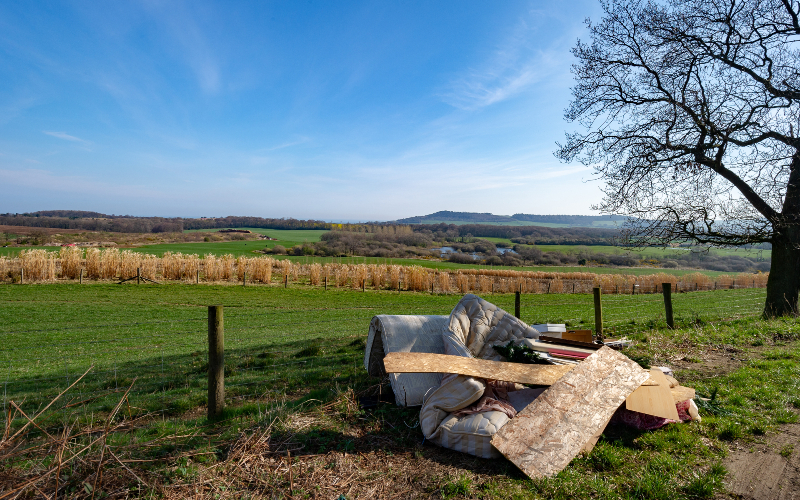
BBC Scotland recently aired a programme exposing ongoing criminal activity by organised gangs profiting from the illegal disposal of waste across Scotland. This has again raised the issue of fly-tipping and illegal waste disposal throughout the country. Over recent years, this practice has developed from small scale fly-tipping of household rubbish to large amounts of industrial or construction site waste being dumped or buried in many areas of Scotland.
This impacts council owned land and private landowners alike, as they are left to deal with the financial and environmental burden of removing this waste from the land. It was estimated by the BBC that Scottish taxpayers pay an annual sum of £53 million towards clean-up costs. There are reports that profits raised from the illegal disposal of waste fund other criminal activities perpetuated by these criminal gangs.
As this problem intensifies, many individuals and businesses are forced to consider what steps landowners can take to prevent rubbish being dumped on their land and indeed how they can properly dispose of waste.
What is the Law?
In Scotland, the current law relating to waste disposal is outlined in the Environmental Protection Act 1990. This states that it is a criminal offence to “deposit controlled waste, or knowingly cause or knowingly permit controlled waste to be deposited in or on any land unless a waste management licence authorising the deposit is in force and the deposit is in accordance with the licence”. This applies to any volume of household, commercial or industrial waste and the failure to comply with this could result in a maximum fine of £40,000 and/or imprisonment for up to 12 months. Local Authorities, the Scottish Environmental Protection Agency (“SEPA”), police and other public bodies have the ability to issue a fixed penalty notice of £200 to individuals caught fly-tipping.
SEPA is heavily involved in the regulation of waste disposal and aims to work with individuals and businesses to ensure compliance with waste disposal legislation. It also deals with the licencing of waste removal services and has a team dedicated to tackling illegal waste management activities, such as the large scale dumping of waste, unlawful collection of waste, and illegal landfill sites. SEPA has reported that it is currently dealing with 234 cases of waste crime, of which 31 cases are linked to organised crime or have the potential to cause severe environmental damage. The impact of illegal waste burial at one site in Lanarkshire was demonstrated by methane emissions reading 60 times over the legal limit permitted within the perimeters of regulated landfills.
The renewed discussion around this topic may lead to further steps being taken to enforce the law and, therefore, individuals, businesses and landowners must be aware of their obligations when it comes to disposing of household, commercial or industrial waste.
What can you do?
If you are looking to dispose of any kind of waste, you should check that the company collecting the waste is registered with SEPA and that they can confirm which licenced site the waste is being taken to.
Any fly-tipping should be reported to your Local Authority and to SEPA as soon as possible. Landowners should also be alert to the risk of their land being used for illegal waste disposal and make note of any unusual activity in remote areas or movements of vehicles at antisocial hours. Any suspicious activity should be reported to SEPA. Reports can be made 24/7 online or by contacting SEPA on 0800 80 70 60.
Landowners ultimately carry the responsibility to ensure that waste on their land is removed and disposed of safely, and failure to comply with the law could result in criminal prosecution.
For any further information and advice on managing your land, please contact a member of our Land and Rural Business Team.
